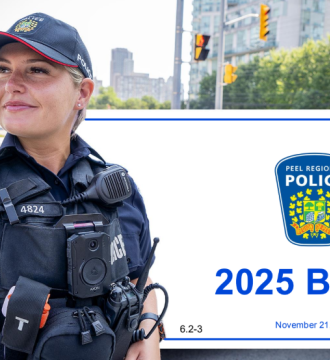Healing Beyond the Individual: Addressing Trauma Through Systems and Community

At our recent Community of Practice meeting, we explored the theme of complex trauma, intergenerational trauma and healing while discussing Chapter 3 of My Grandmother’s Hands, a book by Resmaa Menakem. This chapter examines how trauma is not just a psychological phenomenon but is also stored in the body, shaping our interactions and responses to stress. Menakem highlights how trauma is passed down through generations, not just through stories or behaviours, but also biologically, influencing our nervous systems.
“Trauma is held in the body, and it is passed down through generations.” – Resmaa Menakem
Menakem (2017) states healing must be both a personal and collective effort—one that addresses structural inequities while fostering spaces for resilience and recovery. Understanding trauma through this lens challenges us to move beyond an individual-focused approach to healing and instead examine the systems that perpetuate harm.
Understanding Trauma Beyond the Individual
Menakem explains that trauma is often recognized as an individual experience, but it extends beyond personal struggles - it exists within families, communities, and broader societal structures. Many traditional mental health approaches focus on treating individual symptoms as they manifest psychologically, but Menakem suggests that trauma is also deeply somatic (body-based).
“The body remembers what the mind forgets.” – Resmaa Menakem
Within our conversations, we also explored the theme of intergenerational trauma. As explored by Lee et al. (2023), intergenerational trauma arises when individuals experience the effects of trauma passed down from family members in previous generations. These inherited wounds can influence relationships, mental health, and overall well-being. These inherited wounds can influence relationships, mental health, and overall well-being, often persisting across generations if left unaddressed (Bombay at el., 2014).
It is important to recognize that trauma is not just an individual experience, but a toll that is experienced by entire communities (Menakem, 2017). In alignment with this, the Skoll Foundation (2024) hosted a forum that explored trauma from the perspective of historical events like slavery and colonization, to explore next steps for reshaping destructive systems. Most notably, participants identified that intergenerational trauma stalls growth progress, and movements towards liberation' (Skoll Foundation, 2024). This perspective suggests that those impacted by intergenerational trauma deserve holistic, trauma-informed, and culturally responsive care that prioritizes their safety and wellbeing.
As our conversation continued, members reflected on the importance of both understanding and addressing intergenerational trauma in their lives. In this context, healing from trauma involves acknowledging past experiences while cultivating resilience and fostering meaningful connections. An exploration of community-led, trauma-informed, prevention-oriented, resilience-building, and healing-centered considerations is essential for strengthening communities (The Campaign for Trauma-Informed Policy and Practice [CTIPP], 2023). By prioritizing community-driven solutions and ensuring access to supportive resources, we can help individuals and families break cycles of trauma and move toward a future grounded in healing and strength (CTIPP, 2023)
Shifting Mental Health Perspectives: From Symptoms to Systems
Traditional mental health models often categorize trauma responses as individualistic, rather than recognizing them as natural reactions to broader systemic challenges (Lee et al., 2023). The individualistic approach overlooks the root causes of trauma, placing the burden of healing solely on the individual rather than examining the structures that contribute to harm (Lee et al., 2023). The first step in challenging the traditional understanding of intergenerational trauma is by reassessing how we interact with it. Ginwright (2018) suggests that addressing trauma in alternative ways requires reframing the questions we ask. Instead of asking, “What is wrong with this person?”, we must shift the conversation to “What happened to this person?”—, more critically, “What systems allowed this to happen?” (Lee et al., 2023). This shift in perspective acknowledges that intergenerational trauma is not personal, but a collective experience shaped by historical oppression, systemic racism, and structural inequities.
“When we don’t acknowledge that trauma lives in the body, we end up trying to deal with it in ways that don’t heal us.” – Resmaa Menakem
True healing requires more than just addressing individual symptoms—it demands a shift toward systemic change (Skoll Foundation, 2024). Only when we widen our gaze to the broader social, historical, and structural factors that contribute to intergenerational trauma, do we create space for holistic, community-driven healing (Chioneso et al., 2020). This sentiment highlights the need to prioritize systemic change over individual pathology to ensure that those impacted are empowered to heal. By doing so, long-term transformation becomes possible, steadily creating a society where resilience is not the exception but a shared outcome.
Organizations in Peel Providing Trauma Support
For individuals and families in Peel Region, several organizations offer trauma-informed services:
- Family Services of Peel - Provides trauma-specific services such as individual and group counseling, peer support, and educational programs. Their programs are designed to assist children who have experienced or witnessed violence.
- Victim Services of Peel - Offers a 24-hour crisis line and immediate on-site support for individuals affected by trauma. Their crisis team provides referrals to a wide range of services and supports for victims.
- Punjabi Community Health Services (PCHS) – Offers culturally specific mental health and wellness programs for the Punjabi-speaking community, providing trauma-informed counseling and support services that focus on building resilience and healing, especially for those impacted by intergenerational trauma.
- Catholic Family Services Peel-Dufferin – HEAL Program - The HEAL (Helping End Abuse for Life) program offers therapeutic group sessions for mothers and children to process experiences of violence. They also provide youth groups and educational workshops focused on building leadership skills and addressing the impacts of intimate partner and family violence.
- Centre of Addiction and Mental Health (CAMH) – Has created a resource guide that provides information to different trauma supports, which you can access here.
- Roots Community Services Inc – Provides culturally responsive programs for Black youth and their families, focusing on trauma-informed and healing-centered interventions. These programs aim to address the unique challenges faced by Black communities, acknowledging the impact of intergenerational trauma.
- Indus Community Services – Provides culturally responsive, trauma-informed counseling and services for individuals experiencing domestic violence, intergenerational trauma, and mental health challenges. Their programs aim to empower individuals and families to heal and thrive.
- Associated Youth Services of Peel (AYSP) – Offers trauma-specific services including individual and family counseling for youth facing mental health challenges, particularly those impacted by trauma. They also offer prevention programs to build resilience and coping strategies.
These organizations play a crucial role in addressing trauma at both individual and systemic levels.
References
Bombay, A., Matheson, K., & Anisman, H. (2014). The intergenerational effects of Indian Residential Schools: Implications for the concept of historical trauma. Transcultural Psychiatry, 51(3), 320–338. https://doi.org/10.1177/1363461513503380
- Endnote: This article explores the long-term psychological effects of Indian Residential Schools on Indigenous populations, specifically focusing on how the trauma is transmitted across generations.
Chioneso, N. A., Hunter, C. D., Gobin, R. L., McNeil Smith, S., Mendenhall, R., & Neville, H. A. (2020). Community healing and resistance through storytelling: A framework to address racial trauma in Africana communities. Journal of Black Psychology, 46(2–3), 95–121. https://doi.org/10.1177/0095798420929468
- Endnote: The authors propose a framework for using storytelling as a method of community healing, highlighting its effectiveness in addressing racial trauma within Africana communities.
Lee, A. T., Chin, P., Nambiar, A., & Hill Haskins, N. (2023). Addressing intergenerational trauma in Black families: Trauma‐informed socioculturally attuned family therapy. Journal of Marital and Family Therapy, 49(2), 447–462. https://doi.org/10.1111/jmft.12632
- Endnote: This paper discusses how trauma-informed, culturally attuned family therapy can address intergenerational trauma in Black families, aiming to create healing spaces for trauma recovery.
Menakem, R. (2017). My grandmother’s hands: Racialized trauma and the pathway to mending our hearts and bodies. Central Recovery Press.
- Endnote: Menakem's work focuses on the physical and emotional effects of racialized trauma, and it presents pathways to healing through understanding historical and racial trauma.
Ginwright, S. (May 31, 2018). The future of healing: Shifting from trauma informed care to healing centered engagement. Medium. https://bit.ly/3FisCC9
- Endnote: Ginwright calls for a shift in how we approach trauma care, emphasizing the need for healing-centered engagement rather than just trauma-informed care, which can often focus solely on symptoms.
Join the Conversation!
We invite you to reflect on these ideas and share your thoughts:
- How can organizations and service providers create more trauma-informed and culturally responsive spaces?
- What systemic barriers do you believe prevent effective trauma healing?
- How can we incorporate collective healing practices into our communities?
- What actions can individuals take to support both personal and systemic healing?
Your voice matters—let’s work together to foster healing and transformation.




Comment